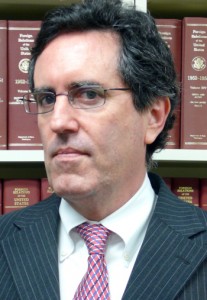
JIEDDO spent north of $1 Billion and climbing and was not able to do what these guys have…..
Researchers Say Laser Could Detect Roadside Bombs
PCMag.com, September 19, 2011
Researchers at Michigan State University have developed a laser that could be used to detect roadside bombs, also known as improvised explosive devices (IEDs).
The device is no stronger than a typical presentation pointer, but it has the sensitivity and selectivity to scan large areas and detect the chemicals used in these deadly bombs, which have accounted for about 60 percent of soldier deaths in Iraq and Afghanistan.
Phi Beta Iota: In 1988, when the Marine Corps Intelligence Center (today a Command) was created, Measurements and Signatures Intelligence (MASINT) was just getting started. The #1 officially-stated Marine Corps requirement for MASINT in 1988 was precisely this: the ability to detect ground explosives at stand-off distance regardless of the containers. Nearly a quarter century later, and billions–not just one billion–later, the US Government still cannot do this. This Israelis solved the problem for themselves in the 1960's, using trained dogs that were expendable. The US Government learned of this solution in 1988, but refused to take it seriously (dogs are not an expensive enough solution). As General Robert Scales has pointed out, 4% of the force (infantry) takes 80% of the casualties, but receives less than 1% of the funding. This is, in one word, corruption. The Department of Defense lacks integrity in every sense of the word.
See Also:







